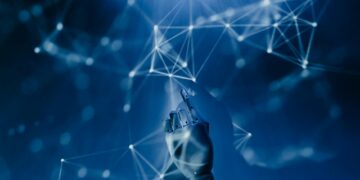The landscape of technology is undergoing a profound transformation, with artificial intelligence agents rapidly evolving beyond mere tools into sophisticated, increasingly autonomous systems. This paradigm shift is not just an incremental improvement; it represents a fundamental redefinition of how work is done, decisions are made, and humans interact with technology. From performing repetitive tasks to independently executing complex projects, these agents, capable of learning, reasoning, and planning, are sparking urgent and necessary conversations across industries worldwide. We are moving from a world where AI simply assists, to one where it actively participates and even initiates, compelling us to critically examine the future of work, the nuanced nature of human-AI collaboration, and the profound societal implications of this unprecedented technological leap.
From tools to nascent autonomy: The AI agent’s journey
The progression of AI agents has been nothing short of remarkable. Initially, AI systems were largely reactive, following predefined rules to execute specific tasks. Think of early expert systems or simple chatbots that could only respond to a limited set of commands. These were essentially advanced tools, augmenting human capabilities by automating mundane, repetitive processes. Their intelligence was constrained by the data and logic explicitly programmed into them, with no capacity for independent learning or complex decision-making outside their narrow domain.
However, recent breakthroughs in machine learning, particularly deep learning and reinforcement learning, have propelled AI agents into a new era. Today’s agents are characterized by their ability to perceive their environment, process vast amounts of data, learn from experience, make predictions, and even plan and execute multi-step tasks to achieve a defined goal. They are evolving from mere responders to proactive entities that can adapt, self-correct, and often, operate with minimal human intervention. This shift introduces the concept of *autonomy*—the capacity for an agent to operate independently, making decisions and taking actions without direct human control at every step. This autonomy manifests in various forms, from AI systems managing complex logistical supply chains to agents designing new materials or even conducting scientific experiments. This foundational change is illustrated in the table below:
| Evolutionary stage | Agent characteristics | Typical tasks/impact |
|---|---|---|
| Simple tools (early AI) | Rule-based, reactive, no memory or learning. | Automated repetitive tasks, data entry, basic calculations. |
| Intelligent assistants (modern AI) | Perception, some reasoning, limited memory, goal-oriented within defined parameters. | Customer service bots, scheduling, information retrieval, content generation (guided). |
| Autonomous agents (emerging) | Proactive, planning, self-correction, complex problem-solving, continuous learning, goal-setting. | Strategic project management, scientific discovery, complex system optimization, adaptive design, independent research. |
Redefining roles: AI agents and the future of work
The advent of increasingly autonomous AI agents inevitably casts a new light on the future of work. The conversation is no longer solely about job displacement; it’s now a multifaceted discussion encompassing job augmentation, job creation, and the profound transformation of existing roles. In many sectors, AI agents are taking over tasks that are dangerous, dull, or dirty, freeing human workers to focus on higher-value activities requiring creativity, critical thinking, emotional intelligence, and interpersonal skills.
Consider the realm of data analysis: autonomous agents can now sift through petabytes of information, identify patterns, and generate insights at speeds impossible for humans. This doesn’t eliminate the data scientist, but rather elevates their role to interpreting these insights, formulating new hypotheses, and guiding the AI’s learning process. Similarly, in creative fields, AI can generate initial drafts, design variations, or compose musical pieces, allowing human artists to refine, personalize, and imbue their work with unique vision and emotional depth. The most significant shift will be from task-oriented roles to *managerial roles over AI systems*, where humans are responsible for setting objectives, monitoring performance, and ensuring the ethical deployment of autonomous agents. This creates a demand for new skill sets centered around AI literacy, prompt engineering, and human-AI system design.
The art of synergy: Human-AI collaboration models
As AI agents grow in capability, the focus shifts from a “human versus machine” dichotomy to “human with machine” collaboration. This synergy is not a single model but rather a spectrum of interactions, ranging from AI as a mere assistant to a peer-like collaborator. At its simplest, AI provides assistive support, automating background tasks and offering recommendations. Moving along the spectrum, AI can act as a co-pilot, actively participating in decision-making processes, offering different perspectives, and even challenging human assumptions based on data-driven insights. In more advanced scenarios, AI agents can be delegated entire sub-projects or complex problem-solving endeavors, with humans overseeing the strategic direction and final validation.
Effective human-AI collaboration hinges on several critical factors:
- Transparency: Humans must understand how AI agents arrive at their conclusions or actions, fostering trust and enabling critical oversight.
- Interoperability: Seamless integration of AI systems into human workflows is crucial for efficiency.
- Shared understanding: Both humans and AI need clear, unambiguous objectives and performance metrics.
- Adaptive learning: Collaborative systems should allow both humans and AI to learn from each other, improving performance over time.
Cultivating this synergy requires developing new communication protocols, designing intuitive interfaces, and fostering a culture where humans and AI are seen as complementary partners, each bringing unique strengths to the table.
Navigating the challenges and opportunities: Ethical AI and skill development
The rapid evolution of autonomous AI agents sparks urgent conversations that extend beyond productivity gains. Ethical considerations stand at the forefront. Issues such as algorithmic bias, accountability for AI decisions, data privacy, and the potential for misuse demand immediate attention. If an autonomous agent makes a critical error, who is responsible? How do we ensure these systems reflect human values and do not perpetuate or amplify societal inequities? Addressing these challenges requires robust regulatory frameworks, rigorous ethical guidelines in AI development, and multidisciplinary collaboration between technologists, ethicists, policymakers, and legal experts.
Simultaneously, the imperative for human skill development cannot be overstated. The future workforce will require not just technical proficiency, but also enhanced “human” skills such as creativity, emotional intelligence, critical thinking, and complex problem-solving that are difficult for AI to replicate. Lifelong learning will become the norm, with continuous upskilling and reskilling programs essential for individuals to remain relevant and adaptable in a rapidly changing professional landscape. Embracing this era means viewing AI not as a competitor, but as a powerful catalyst for human potential, pushing us to evolve our capabilities and redefine what it means to be productive and innovative in a technologically advanced world.
The journey of AI agents from rudimentary tools to sophisticated autonomous systems marks a pivotal moment in technological history, fundamentally reshaping our professional and societal landscapes. As we’ve explored, this evolution necessitates a re-evaluation of work structures, challenging traditional roles while simultaneously fostering new opportunities for human-AI collaboration. Effective synergy, built on transparency and mutual understanding, is paramount for unlocking productivity and innovation. However, this transformative path is not without its complexities, demanding proactive engagement with critical ethical considerations, robust governance frameworks, and a commitment to continuous human skill development. The future of work will undoubtedly be a collaborative endeavor between humans and increasingly intelligent machines, calling for a thoughtful, adaptive, and human-centric approach to harness AI’s full potential responsibly.


















